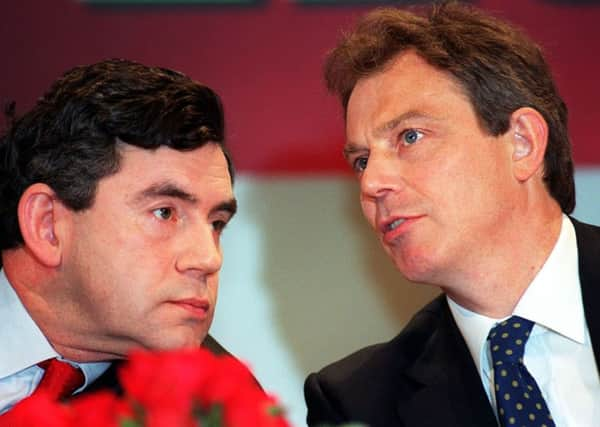Bernard Ingham: May should look at Brown before doing '˜vision thing'


A well-meaning friend suggested Bush, as vice president, should retreat alone to Camp David when it was clear he was going to run for president and work out where he wanted to take the country.
To which the unimpressed Bush replied “Oh, the vision thing”, thereby perhaps confirming his difficulty in articulating his objectives
Advertisement
Hide AdAdvertisement
Hide AdI mention this because 25 years ago come Saturday Gordon Brown, then Shadow Chancellor, demonstrated conclusively that he had taken “the vision thing” to heart.
He outlined his social and economic ambitions for the future. He intended, it seems, to turn this sceptred isle into a modern Shangri-la.
Coming as it did in 1993 – only a few years after Neil Kinnock had routed Militant – it must have had Jeremy Corbyn and his hard lefties in Islington not knowing whether to laugh or cry into their pina coladas.
Here are the main aims and pledges he articulated:
Abolition of long-term and youth unemployment with an offer of work or high-quality training;
Advertisement
Hide AdAdvertisement
Hide AdSomething “far in advance of the traditional definition of full employment” – the three per cent unemployment rate expressed by Sir William Beveridge in 1944;
Abolition of the concept of permanent redundancy, replacing all redundancy with “the sure prospect of re-skilling”; and, wait for it,
“Low inflation is a necessary economic objective and demand management is a necessary economic instrument.”
“No unemployment, fine”, I can hear Islington’s Corbynistas muttering even now over their cocktails. “But what’s all this stuff and nonsense about controlling spending and inflation?”
Advertisement
Hide AdAdvertisement
Hide AdNo wonder Labour got elected in 1997 after 18 years of Tory rule. Here, at last, in Brown was a sensible, prudent Labour Shadow Chancellor with an exalting vision.
It seemed that Labour had at last learned something from history.
And when they promised to stick to Tory spending plans it was game, set and match for Labour.
History does not record whether Brown went into the wilderness before bringing down his uplifting tablets. But no one can argue that he lacked “the vision thing”.
Advertisement
Hide AdAdvertisement
Hide AdSo what went wrong? I am afraid you cannot put it all down to the global financial crash in 2007-08, even though Brown is credited with saving the world economy from ruin.
Brown inherited from John Major and Kenneth Clarke in 1997 not merely a solvent economy after the 1992 ERM trauma but a budget surplus. We were raising more in taxes than spending.
It took 10 years for Brown to blow it in a spectacular fashion. He handed a deficit of £153bn to David Cameron’s coalition. Seven years on, that deficit has been reduced by two-thirds but, at around £50bn, it still handicaps the Government.
We are paying about £50bn a year in interest on it and the national debt which has soared – and is still soaring – to around £1.8 trillion (thousand billion) as the Tories wrestle with the deficit and Corbyn’s incessant but ludicrous talk of “austerity Britain”. What austerity?
Advertisement
Hide AdAdvertisement
Hide AdThe plain truth is that Brown did for “the vision thing” what St George did for the dragon. The public have grown weary of politicians’ grand designs.
This is because Brown, like others, did not practise what he preached. After about two years of holding to the Tory spending line, he opened the taps just as Tony Blair opened our doors to immigrants and then involved us in a war in Iraq on the basis of a lie.
As if that were not enough, Brown made GPs an offer they could not refuse – more pay for less work – when it was clear that the influx of immigrants, along with an ageing population and new treatment techniques, was straining the NHS and social services to bursting point.
The government of which he was a key member, and later leader, manifestly failed to live up to his 1993 precepts.
Advertisement
Hide AdAdvertisement
Hide AdMrs May knows that you can have all the vision in the world but if you don’t deliver you are in trouble.
Brown may have had oodles of vision but he could not control Labour’s propensity to spend, assuming he wanted to do. The lesson for Mrs May, opposed by the promise-anything Corbyn, is to stick to your last and blow the vision.